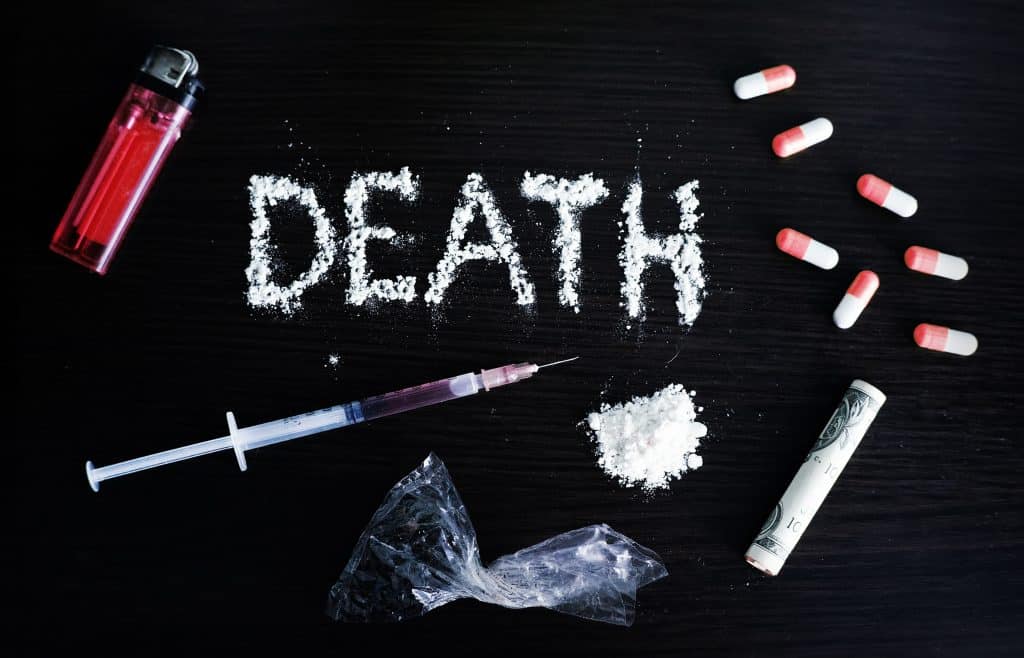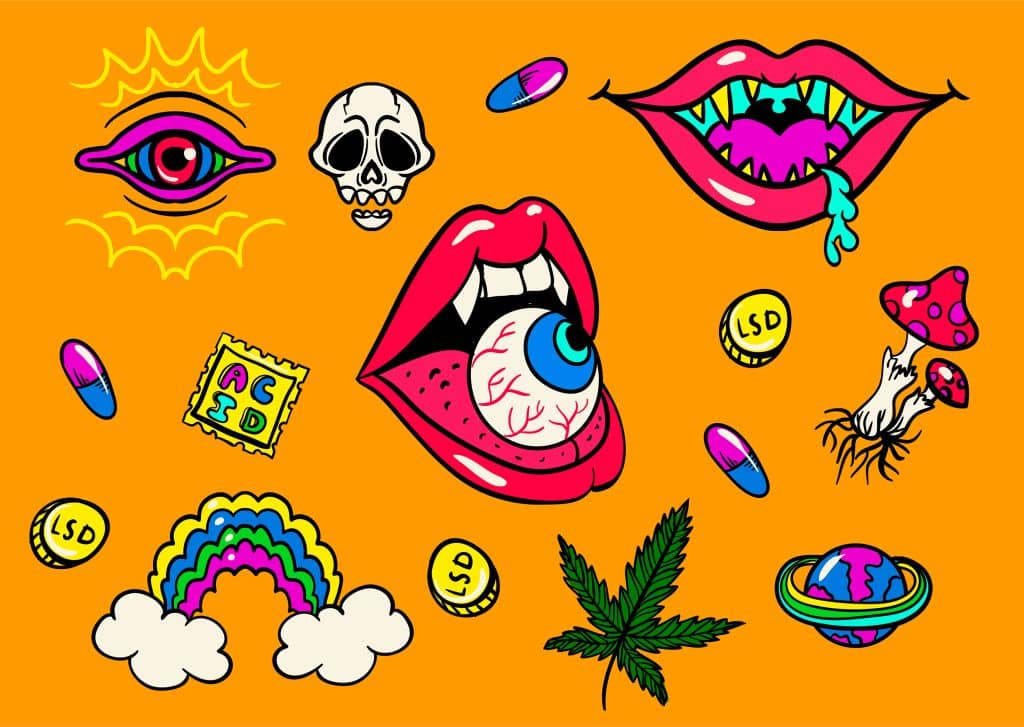Knowing that cannabis legalization is just around the corner, one can only help but wonder, what will be the next drugs to become legal? And when will it happen? Well, weed isn’t even legal yet so let’s not get ahead of ourselves. But considering we’re in a sort-of psychedelic renaissance with both policy and public opinion shifting in favor of these compounds, it’s not very off-base to assume that some of them will be more widely accessible one day. What might be next on the list? Let’s take a look.
To stay current on everything important happening in the industry, as well as gain access to deals on cannabis flowers, vapes, edibles, and much more (various cannabinoids to choose from), make sure to subscribe to The Cannadelics Weekly Newsletter. Enjoy responsibly!
Possible timeline for cannabis legalization
It’s only a matter of time before cannabis is fully legalized, although sometimes it can still be difficult to picture… especially for those of us stuck living in very restrictive prohibition states (I’m looking at you, Midwest and Deep South). But exactly how long is that timeline? Some believe it could happen as early as the end of this year. As much as I would love to see that happen, I’m not sure it will be quite that soon. However, for a few different reasons, I do think we could see weed completely legalized sometime in 2023, or by early 2024 at the latest.
First, we have midterm elections coming up and all 435 seats in the House of Representatives (as well as 35 of the 100 Senate seats) will be contested, and federal cannabis legalization depends largely on who controls congress. It does seem that republicans currently have the edge, especially as voters continue to worry about inflation other economic issues, but that may not matter as we have been seeing a growing number of pro-cannabis republicans, both in office and constituents.
Next, we have a handful of states that plan on putting recreational cannabis up for a vote in November. Should they all pass – and it’s likely they will – that will put us over the tipping point with more than half of our states having passed adult-use marijuana laws. It doesn’t sound like much… only a few more states with legal pot, what’s the big deal right? Well, it has many implications for the government so it’s actually a huge deal.
If more than half the states in our country are openly defying federal law (and many more are towing the line with medical pot), that makes our government look very weak. The last thing a government wants is to look like it has no control over its people. Another thing the government is not too keen on is looking hypocritical. Despite being hypocritical nearly all the time, the more obvious that is to voters, the less trust people have in their government, and the more likely they are to rebel against it.
On October 6th, President Biden issued a sweeping, unconditional pardon for anyone who has been convicted of simple cannabis possession under federal law. While this is amazing and long overdue news, it does set a very confusing legal precedent. From this point forward, how can people continue to be arrested and charged with cannabis-related crimes that everyone else got pardoned for? It’s hypocrisy to the max, and the only possible thing this could lead to is the government eventually being buried in lawsuits.
All that said, it’s safe to say that pot will likely be legal soon. How soon exactly is up for debate, but once again, I imagine that within a year, we’ll see the changes we’ve been fighting for. And once cannabis is no longer prohibited, it will be time to push these decriminalization and legalization efforts on to new substances.
Effective dose vs lethal dose ratios
When looking up how drug prohibition works and what some of the parameters are for legalizing various compounds, a concept that came up frequently was “effective dose vs lethal dose”. This is referring to the dose it takes to get high versus the dose it takes for the drug to kill someone, and how that ratio compares to other drugs.

For example, the lethal dose to die on alcohol is only 10 times the dose needed to get drunk. Compare this with psilocybin, which has a lethal dose that is estimated to be 1,000 times higher than the effective dose, or even ketamine whose lethal dose is 38 times higher than the effective; one can easily ascertain that psychedelics – both natural and synthetic – are relatively safe.
Follow the money
Although our overlords would like to have us think that they are keeping certain substances illegal for reasons like the one I listed above, the reality is, it’s mostly related to money. The government receives a substantial amount of money from several industries that benefit from the prohibition of cannabis and psychedelics. These include oil, biotech, and pharmaceutical companies, big tobacco, the for-profit prison industry, and so on.
All these industries are funneling hundreds of millions (possibly billions) of dollars to government representatives and lawmakers through political donations, lobbying, and various other types of corporate interest payments. Knowing this makes it easy to conclude that many of the laws we have in place are there to serve the best interests of the corporations that pay our government, rather than the citizens they were elected to represent.
Taking that into consideration, what can we expect as far as future drug legalization? Honestly, it’s hard to say. On one hand, we’re already seeing policy changes on a smaller scale with a growing number of cities across the country that have decriminalized different psychedelic drugs. Look at Ann Arbor, Michigan, whose city council voted unanimously to decriminalize all entheogenic plants back in September 2020. That includes ayahuasca, psilocybin mushrooms and truffles, mescaline-containing plants (excluding peyote), ibogaine, and other plants with hallucinogenic properties that are still considered illegal under state and federal law.
Ann Arbor is probably the most progressive example, but many other cities have decriminalized at least one psychedelic compound, psilocybin being the most common. Based on that information, it’s safe to assume that recreational psychedelics legalization will follow the same path as cannabis reform.
On the other hand, it does seem unlikely that many of these drugs will be legalized for widespread adult-use… why would the government want to give us that much power over our own happiness and well-being? Yes, cannabis will be totally legal soon, but that took decades of rebellion and we’re still not quite there yet. What’s more plausible is that the government will try to legalize the majority of psychedelic compounds for pharmaceutical use only, since big pharma spends the most on political lobbying and it’s easier to get medical legalization bills passed anyway.
It’s likely that drugs such as MDMA, ketamine, and LSD will be used largely in therapeutic settings, whereas we may see more of a push at the grassroots level to decriminalize/legalize plant-based entheogens for all, since it’s harder to regulate or ban something that grows from Earth.
Public opinion on psychedelics
With so many policy changes happening on the psychedelics front, it seems pretty obvious that the general public is opening up to the idea of using them, at the very least, in therapeutic settings. In a recent poll by internet-based analytics company, YouGov, it was determined that roughly 28% of Americans have tried one or more psychedelic drugs (of the seven polled) at some point in their lives.

The largest number of people reported having tried LSD (14%), followed closely by psilocybin (13%). Next, nearly one in ten claimed to have used MDMA (9%) and mescaline (8%). A smaller but still significant number say they have used ketamine (6%), DMT (6%), and/or salvia (5%).
Interestingly enough, the study found that support for legalizing psychedelic drugs still remains low, despite how many people claim to have tried them. This is especially true among people 65 or older, religious individuals, and those living in rural areas. The people most likely to support psychedelic drug reform were those who have tried them before (naturally), people with postgraduate degrees, 30- to 44-year-olds, and people living in the western United States.
Overall, 54% of Americans do support allowing more research into psychedelic substances, particularly to use for military members and veterans suffering from PTSD – doubling down on the earlier sentiment that it’s often easier to legalize drugs in a medicinal context.
What’s on the horizon for legal drugs?
Psilocybin: A lot is going on with psilocybin at the state-level, which leads me to believe that it will be one of the first drugs to possibly be decriminalized or legalized following cannabis. For example, this November, Coloradoans will vote on the Natural Medicine Health Act (NMHA or Initiative 58), which would legalize psilocybin (as well as a handful of other entheogens) for use in approved healing centers.
Additionally, the safety profile of mushrooms is much better than most other drugs, both psychedelic and otherwise. A recent study published in the Journal of Psychopharmacology found that only 0.2% of shroomers (or 19 out of 9,233) end up in emergency rooms after use, and these adverse incidents are almost exclusively psychological in nature, meaning they resolve themselves once the high wears off a bit.
Ketamine: Standard Ketamine has only received approval for use as an anesthetic, but there is a huge market for off-label use. Also, a different form of ketamine called esketamine (S-ketamine) has been legalized to use in the treatment of depression. Another type of ketamine called arketamine (R-ketamine) is currently undergoing research and will likely be approved for therapeutic use in the very near future as well. For reference, S-ketamine and R-ketamine are two halves of a whole – the whole compound being standard (or racemic) Ketamine. Individually, these compounds have similar effects and benefits as racemic Ketamine.
MDMA: Again, we’re looking at Colorado as a glimpse into the future of drug legalization, this time with MDMA. The most recent news to come out of the state is the passage of HB 1344, which essentially legalized the use and possession of MDMA by prescription only. It won’t go into effect until the federal government also legalizes it, but once that happens, Colorado has already laid the groundwork for a functioning medical MDMA program.

This is only one state, but more will follow suit. And the more states we have doing this, the more pressure it puts on the government to legalize pharmaceutical MDMA. Additionally, MDMA has proven to be quite effective at treating PTSD. The VA (Department of Veteran’s Affairs) launched clinical trials earlier this year to test its efficacy and safety, compared to the standard available treatments.
Final thoughts
It’s hard to say exactly how soon any of this will happen; but we do know that eventually, it will. It’s inevitable. Not only are more and more studies coming out to back up the use of psychedelics in therapy, but the industry is growing before our eyes. Some of these companies are already publicly traded. If anything, this indicates that psychedelics are heading down the same path as cannabis, but at an even faster rate. In my opinion, the above three will be first up for decriminalization/legalization. What are your thoughts? Drop us a line in the comment section below!
Thanks for stopping by!! Welcome to Cannadelics.com; an independent news platform where we work hard religiously to bring you the best in cannabis and psychedelics reporting. Hang out with us frequently to stay aware of all updates, and subscribe to our Cannadelics Weekly Newsletter, so you’re always first to get the news.
The post After Weed, What Drugs Are Most Likely to Become Legal? appeared first on Cannadelics.
Via https://cannadelics.com/2022/10/24/after-weed-what-drugs-are-most-likely-to-become-legal/
source https://rosalinaklerkx.weebly.com/blog/after-weed-what-drugs-are-most-likely-to-become-legal
No comments:
Post a Comment